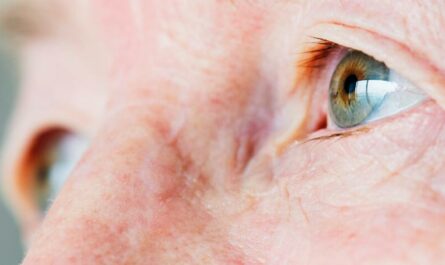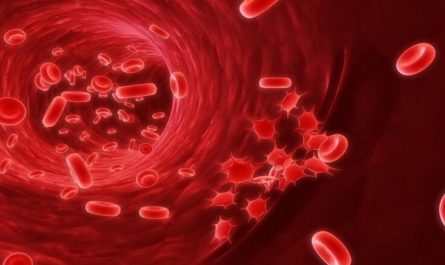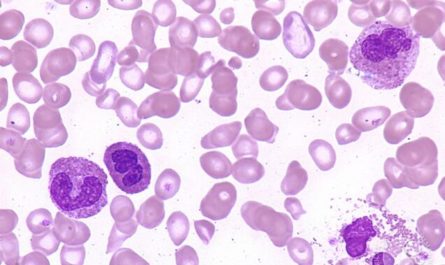Swollen lymph nodes in the neck can be a common occurrence. In most cases, they are often harmless and go away on their own. However, they may also signify a more serious health condition, such as an infection or cancer. Understanding the causes, diagnosis, and treatment of swollen lymph nodes in the neck can help you determine when to seek medical attention. In this article, we will explore the various causes of swollen lymph nodes in the neck, treatment, and prevention.

What are Swollen Lymph Nodes?
Swollen lymph nodes, also known as lymphadenopathy or adenopathy, are a natural response of your body’s immune system to infection or illness. It is responsible for balancing your body’s fluid levels and filtering germs, cells, and other foreign matter that pass through your lymph fluid.
When your body detects an infection or illness, your lymph nodes may become swollen as your immune system works to clear away the invaders.
Swollen lymph nodes can develop in many parts of your body. Common areas where you may notice swollen lymph nodes include your neck, under your chin, in your armpits, and your groin.
Where are the glands in your neck?
There are several groups of lymph nodes located in the neck. These include:
- Submental lymph nodes: located under the chin.
- Submandibular lymph nodes: located on either side of the jawbone.
- Jugulodigastric lymph nodes: located at the angle of the jaw.
- Superficial cervical lymph nodes: located in the front of the neck, over the sternocleidomastoid muscle.
- Deep cervical lymph nodes: located beneath the sternocleidomastoid muscle.
- Posterior cervical lymph nodes: located at the back of the neck, along the edge of the trapezius muscle.
Symptoms of Swollen Lymph Nodes in neck
Some of the symptoms you may experience when your lymph nodes first swell include:
- Tenderness and pain in the lymph nodes: Swollen lymph nodes may cause discomfort and tenderness, especially when touched or pressed.
- Enlargement of lymph nodes: Swelling may cause your lymph nodes to grow in size, ranging from the size of a pea or kidney bean to even larger.
- Runny nose, sore throat, fever, and other indications of an upper respiratory infection: Swollen lymph nodes in your neck may signal an infection in your throat, ears, or sinuses.
- General swelling of lymph nodes throughout your body: A widespread swelling of lymph nodes could signify an infection like HIV, mononucleosis, or an autoimmune disease such as lupus or rheumatoid arthritis.
- Hard, fixed, rapidly growing nodes: These symptoms may indicate the possibility of cancer or lymphoma.
- Fever and Night Sweats: In some cases, swollen lymph nodes may be accompanied by a fever and night sweats, which could indicate an underlying condition.
What Causes Swollen Lymph Nodes in Neck?
1. Infection
Swollen lymph nodes in the neck are commonly caused by infections such as the common cold, flu, and strep throat. These conditions usually cause the lymph nodes on both sides of the neck to swell. Other signs of infection may include fever, body aches, and sore throat.
2. Mononucleosis
Mononucleosis, commonly known as the “kissing disease,” is a contagious virus that can cause swollen lymph nodes in the neck. Other signs of mononucleosis may include fever, fatigue, sore throat, and swollen tonsils.
3. Cancer
Cancer can cause the lymph nodes in the neck to become swollen. Lymphoma is a type of cancer affecting the neck, chest, abdomen, and arms lymph nodes. Other signs of lymphoma may include fever, night sweats, itching, and weight loss.
4. Allergies
Allergies can cause the lymph nodes in the neck to become swollen. Symptoms of allergies may include sneezing, runny nose, watery eyes, and coughing.
5. HIV/AIDS
HIV/AIDS can cause the lymph nodes in the neck to become swollen. Other signs of HIV/AIDS may include a fever, fatigue, and weight loss.
6. Autoimmune Disorders
Autoimmune disorders can cause the lymph nodes in the neck to become swollen. Examples of autoimmune diseases include lupus, rheumatoid arthritis, and Hashimoto’s thyroiditis. Other signs of autoimmune disorders may include fever, fatigue, and muscle aches.
7. Injury
Injury to the neck can cause the lymph nodes to become swollen. Examples of injuries that can cause swollen lymph nodes include a bite from an animal or insect, cuts, scrapes, and burns.

How to Check for Swollen Lymph Nodes?
Swollen lymph nodes are a common symptom of infection or illness, but how do you know if your lymph nodes are actually swollen? Here are some simple steps to help you check your lymph nodes for swelling:
Step 1: Find the lymph nodes
Lymph nodes are small, bean-shaped structures located throughout your body. The most common locations for swollen lymph nodes are the neck, armpits, and groin.
To check your neck, feel along the sides of your neck and under your jawline. If you want to check your armpits, feel the hollow area under your arm. Feel in the crease where your leg meets your pelvis to check your groin.
Step 2: Use your fingertips
Using the tips of your fingers, gently press and feel for any lumps or bumps. Swollen lymph nodes may feel like small, soft, tender lumps that move slightly under your skin. You may feel one or several swollen lymph nodes in the same area.
Step 3: Check both sides
Make sure to check both sides of your body for swollen lymph nodes. It’s common for lymph nodes on one side of your body to be more swollen than the other, but if you notice a significant difference in size or tenderness, it’s essential to see a doctor.
Step 4: Monitor for changes
If you do find swollen lymph nodes, monitor them for changes. If they get bigger or more tender, or if you develop other symptoms like fever or fatigue, it’s essential to see a doctor.
Swollen glands in the neck on one side
If you have swollen glands (lymph nodes) in the neck on one side, it could be a sign of an infection or inflammation in that area of the body.
The lymph nodes in the neck can swell in response to infections in the ear, nose, throat, or mouth, as well as skin infections, dental infections, or other types of infections.
Other possible causes of swollen glands in the neck on one side include autoimmune diseases, such as lupus or rheumatoid arthritis, or certain types of cancer, such as lymphoma.
Swollen lymph node back of the neck
If you have a swollen lymph node at the back of your neck, it could be a sign of an infection or inflammation in the scalp, neck, or upper respiratory tract. The lymph nodes at the back of the neck can become swollen in response to infections such as colds, flu, ear infections, sinus infections, or dental infections.
In some cases, swollen lymph nodes at the back of the neck may also be caused by more serious conditions such as lymphoma, HIV/AIDS, or tuberculosis. However, these are less common causes and are usually associated with additional symptoms.

Home remedies to treat swollen lymph nodes in your neck
If the cause of your swollen lymph nodes isn’t severe, you can try some home remedies to relieve the symptoms.
1. Warm Compresses
Applying a warm compress to the swollen lymph nodes can help increase blood circulation and reduce swelling. Simply soak a clean washcloth in warm water, wring out the excess water, and place it over the affected area for 10-15 minutes. Repeat this several times a day to get relief.
2. Massage
Gently massaging the swollen lymph nodes can help stimulate lymphatic flow, which can help reduce the swelling.
Use gentle circular motions and light pressure, and avoid pressing too hard. You can also use a few drops of essential oil like lavender or peppermint oil to enhance the massage and promote relaxation.
3. Echinacea
Echinacea is a popular herb that can boost your immune system and reduce inflammation. You can take it in supplement form or drink echinacea tea to alleviate the symptoms of swollen lymph nodes.
4. Apple Cider Vinegar
Apple cider vinegar is a potent anti-inflammatory agent that can help reduce the swelling and inflammation of swollen lymph nodes.
Mix one tablespoon of apple cider vinegar with a cup of warm water and drink this mixture twice a day. You can also use apple cider vinegar topically by soaking a cotton ball and applying it to the affected area.
5. Turmeric
Turmeric contains a compound called curcumin, which has powerful anti-inflammatory properties. Adding turmeric to your diet or taking it in supplement form can help reduce the swelling and pain associated with swollen lymph nodes.
6. Rest and Hydration
Resting and staying hydrated can help your body fight infections and reduce inflammation. Ensure you get enough rest and drink plenty of fluids, such as water, herbal tea, or coconut water.
7. Garlic
Garlic has potent antimicrobial and anti-inflammatory properties that can help fight off infections and reduce inflammation. You can eat raw garlic or take garlic supplements to boost your immune system and reduce the symptoms of swollen lymph nodes.
8. Ginger
Ginger is another powerful anti-inflammatory herb that can help reduce swelling and pain. You can add fresh ginger to your meals or drink ginger tea to alleviate the symptoms of swollen lymph nodes.
9. Essential Oils
Some essential oils, such as tea tree oil, eucalyptus oil, and frankincense oil, have antimicrobial and anti-inflammatory properties that can help reduce swelling and pain. Mix a few drops of essential oil with a carrier oil, such as coconut or olive oil, and apply it to the affected area.
10. Vitamin C
Vitamin C is essential for a healthy immune system and can help fight off infections that cause swollen lymph nodes. You can increase your vitamin C intake by eating citrus fruits, berries, kiwi, papaya, broccoli, and other fruits and vegetables rich in this nutrient.
How to prevent swollen lymph nodes in the neck?
Swollen lymph nodes indicate that your body is fighting an infection or illness. Therefore, the best way to prevent them is to avoid getting sick in the first place. Some preventive measures you can take include:
- Practicing good hygiene: Proper handwashing and avoiding touching your eyes, nose, and mouth can help prevent the spread of viruses and bacteria.
- Avoiding close contact with sick people: Stay away from people with colds, flu, or other contagious illnesses to reduce your risk of infection.
- Disinfecting surfaces: Disinfecting frequently touched surfaces like doorknobs, keyboards, and phones can help prevent the spread of germs.
- Staying healthy: Getting enough sleep, eating a healthy diet, and exercising regularly can help keep your immune system strong and reduce your risk of infections.
When should you see a doctor?
Swollen lymph nodes don’t usually require medical treatment. Usually, your swollen glands should clear up after a few weeks.
However, if your swollen glands don’t return to their normal size after the infection is treated, you must see your doctor.
Signs you should watch out for before seeing your doctor include the following
- If your lymph nodes don’t return to normal after 2-4 weeks or if your child has swollen lymph nodes, they should return to normal in 5 days.
- Lymph nodes that swell up abruptly
- If your lymph nodes feel hard and don’t move when you touch them.
- If you see pus in the swollen lymph nodes, you should see a doctor.
- Swollen lymph nodes that come with sudden weight loss
- The affected area turns red or purple
- The affected area feels warm
- When you have enormous lymph nodes (bigger than a kidney bean or a grape).
- If you have swelling in your groin (You may have an STD)
- If your swollen lymph nodes come with a fever that persists.
- Experience profuse night sweating.
If you notice any of these when you have swollen lymph nodes, you must visit your doctor immediately.






